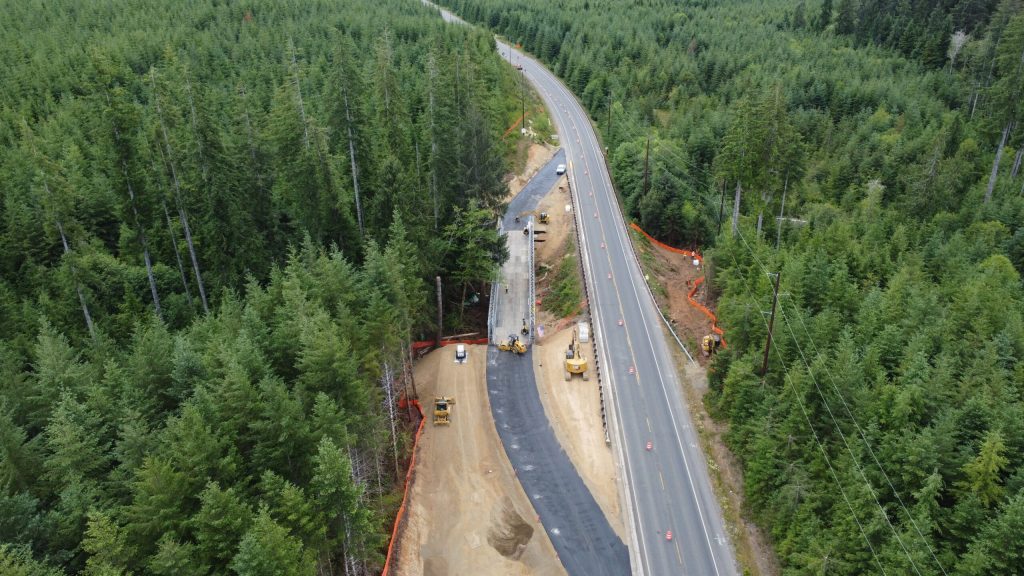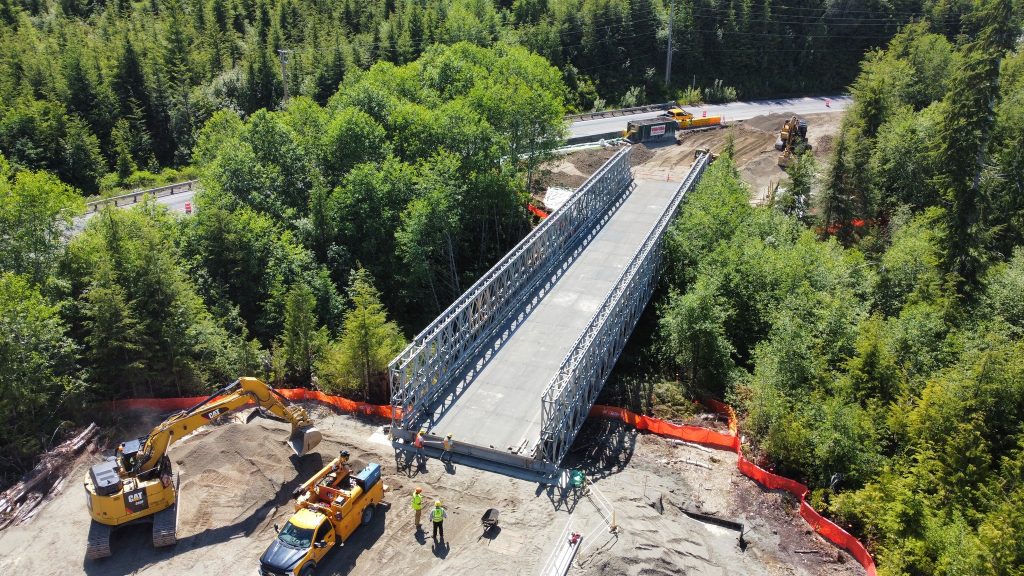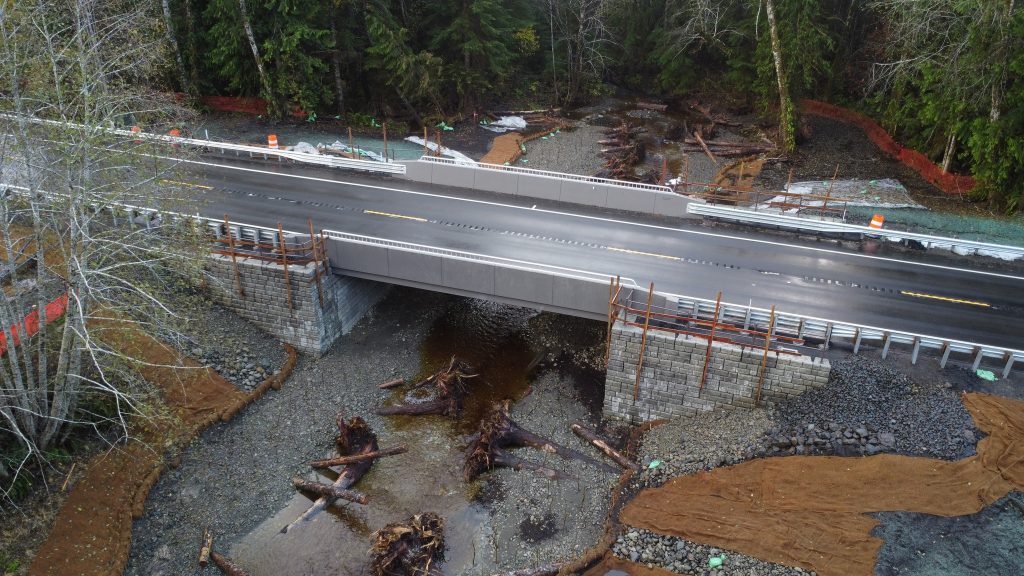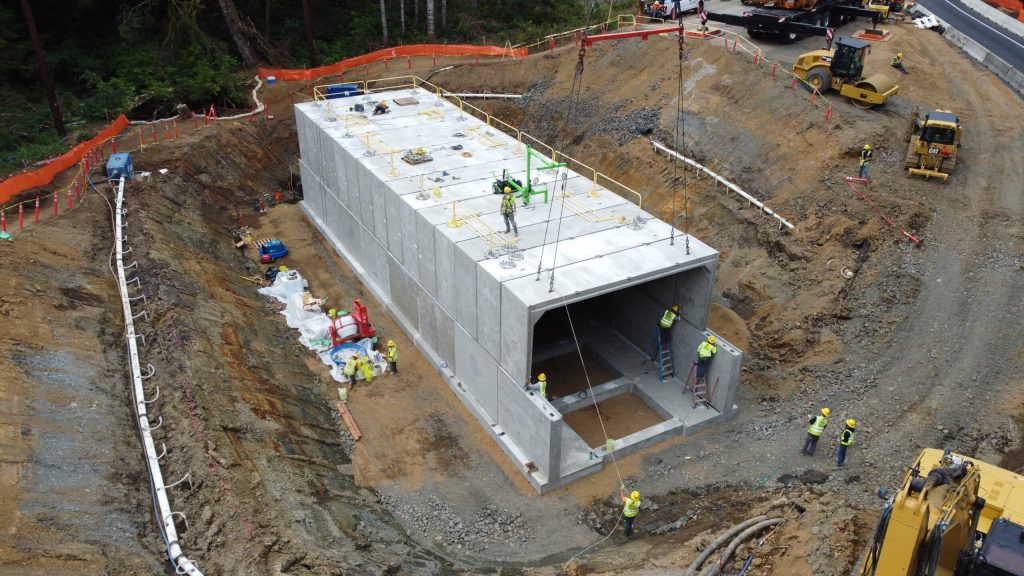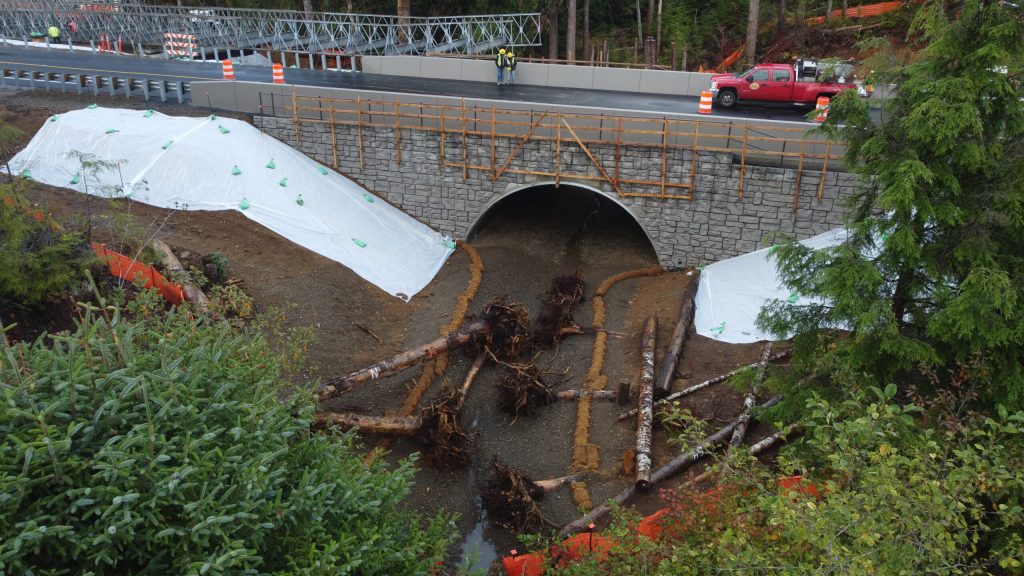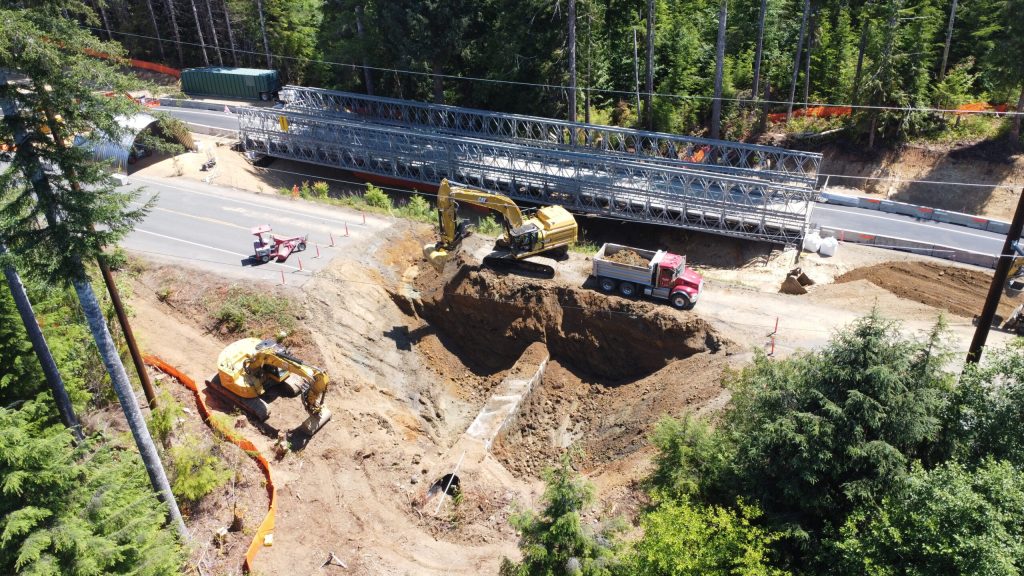Kiewit is delivering one of Washington’s most ecologically significant infrastructure programs: the Coastal 29 Fish Passage Project for the Washington State Department of Transportation (WSDOT) — the agency’s largest fish passage initiative to date. The project involves replacing 29 outdated culverts along US 101 and SR 109 in Clallam, Jefferson and Grays Harbor counties with fish-friendly crossings — restoring habitat connectivity, improving stream function and preserving roadway safety.
Kiewit is serving as the progressive design-build (PDB) contractor, partnering with WSDOT to deliver environmentally sensitive infrastructure across rugged terrain — restoring fish habitat, protecting cultural resources and preserving regional ecosystems in full compliance with state and federal environmental standards.
Each site is being upgraded with new culverts or bridges that allow salmon and other fish to move more freely through Washington’s waterways while still maintaining safe and reliable roadways for the public.
Beyond structural upgrades, the work also includes streambed restoration, erosion control and carefully sequenced construction to protect fish during key migration seasons. As part of the collaborative PDB approach, Kiewit partnered closely with WSDOT to evaluate each site and develop context-sensitive designs that enhance fish habitat while preserving local landscapes.
The 29 crossings were grouped into five bundles based on site conditions and logistics. To execute this work efficiently across rural corridors, Kiewit secured early right-of-way (ROW) access, implemented customized Maintenance of Traffic (MOT) plans to minimize disruptions and coordinated utility relocations in parallel with design. A phased permitting strategy — developed in partnership with local, state, federal and Tribal agencies — has already enabled staggered starts, accelerating delivery while meeting rigorous environmental standards.
Sustainable design decisions are already making a difference. At Bundle 1, Kiewit’s team reduced the project footprint by over five acres, protected mature trees and improved habitat with strategically placed large woody materials. An optimized permitting process also helped accelerate the schedule.
Bundles 1, 2A and 4 are now complete, featuring 16 upgraded sites — including two slab girder bridges, a 42-foot aluminum arch culvert and Washington’s first pre-stressed, post-tensioned box culvert, a 50-foot-wide low-span structure made from 37 precast segments.
Through Coastal 29 and other WSDOT partnerships, Kiewit is helping to remove more than 75 fish barriers across the state — advancing habitat recovery and long-term environmental sustainability.
